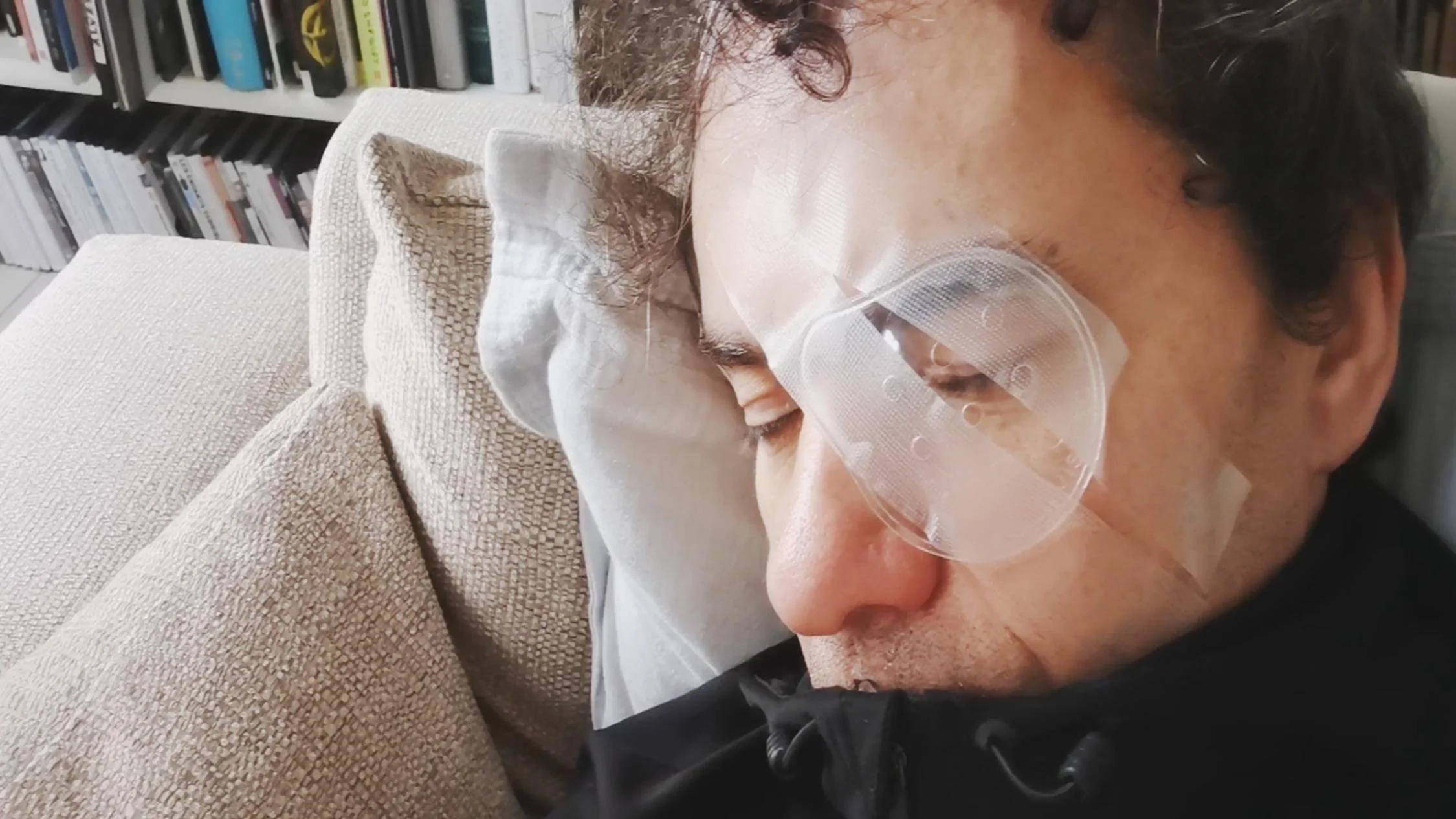The Story of Looking
The documentarian Mark Cousins turns personal in a film about seeing.
Mark Cousins
More film enthusiast than film critic, Mark Cousins is now a firmly established filmmaker in his own right. At first made for television, his now extensive output is increasingly aimed at cinema presentation and, while studies of cinema predominate, his films include a documentary about a city (2015’s I Am Belfast), a fiction based on another city (2016’s Stockholm My Love) and works of wider concern such as Atomic: Living in Dread and Promise. For the most part, he can best be described as a film essayist thus utilising a format in which it is natural that the director should be at the centre of the work. In keeping with that, Cousins, whether actually seen on screen or not, is noted for the amount of talking that he does. A few people seem antipathetic to his markedly individual tone of voice, but I am one of those who find it beguiling, while everybody must surely be in awe of the extent of the man’s knowledge of world cinema.
Although Cousins makes himself prominent in his work, the films of his concerned directly with cinema justify this approach twice over, partly through the remarkable insights he provides and partly because, however strong the lens of his own personality, the focus is on the films that he is discussing. In contrast to that, The Story of Looking, although outwardly wide-ranging as it covers the development of human sight from birth onwards and ponders the nature and importance of seeing, proves in the event to be the most personal film that Cousins has yet made. We encounter him in the bedroom of his Edinburgh flat and he tells us that it is the day before he is due to undergo surgery on his left eye. This is on account of a bad cataract coupled with evidence of macular degeneration. Having shared with us at some length his thoughts and fears, Cousins then allows the film to move on to the next day and to the operation itself. He doesn’t spare us shots of it.
Given the intellect that Cousins possesses and his range of interests, it is hardly surprising to find that his thoughts incorporate references to painters and writers and, inevitably, to films too (if Un Chien Andalou is to be expected, such titles as The Music Room and 42nd Street are not). Talk of colour blindness leads into a view of The Wizard of Oz showing a dimmed version of some of its most colourful footage while more broadly Cousins comments on optical development, quality of light and even the current popularity of selfies. But, despite the width of reference here, the emphasis on himself comes across as self-centred in a way that feels indulgent.
Furthermore, the film carries a sense of the artificial about it. Given all the material incorporated - be it of photographs Cousins has taken himself or of movie clips selected - the film must have been worked on over a considerable period of time, but it tries to persuade us that this is all an impromptu off the cuff record of musings immediately prior to the op. That clash between the seemingly unplanned and our sense of a film worked on thoroughly and at length keeps us at a distance. Even more at odds with the general approach is the late sequence which turns to fantasy by looking ahead to 2031 (it shows us an older Mark Cousins living in Sweden).
There are many striking visuals in the film, a good use of music on the soundtrack and plenty of ideas that provide food for thought. Nevertheless, for once I could understand why some people find Mark Cousins an irksome screen presence. The film may be described as a journey through our visual lives, but that doesn’t stop Cousins from allowing himself to take over the film. How you react to that is probably a matter of personal taste.
MANSEL STIMPSON
Featuring Mark Cousins.
Dir Mark Cousins, Pro Mary Bell and Adam Dawtrey, Screenplay Mark Cousins, from his book, Ph Mark Cousins, Ed Timo Langer, Music Donna McKevitt.
BofA Productions/BFI/Screen Scotland-Modern Films.
87 mins. UK. 2021. Rel: 17 September 2021. Cert. 15.


